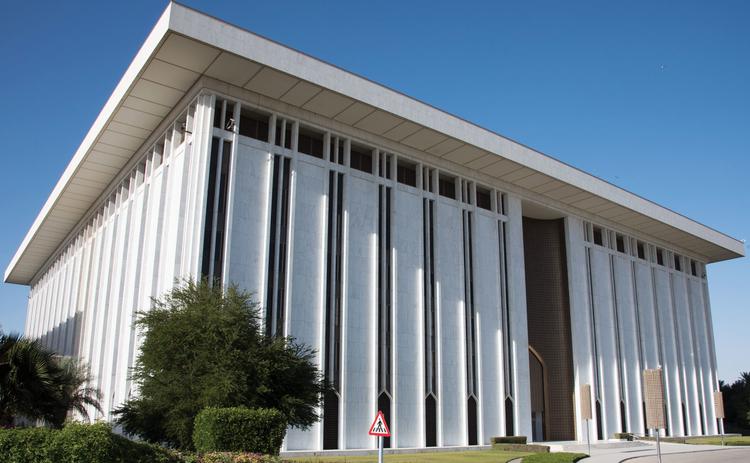
Saudi Arabia Deposits $5 Billion in Türkiye's Central Bank
Economic Support Amid Inflation and Earthquake Recovery Efforts as Ankara and Riyadh Mend Relations
Saudi Arabia has signed an agreement to deposit $5 billion (TL 94.57 billion) in Türkiye's central bank, a significant move as the nation's economy deals with inflation following last month's massive earthquakes and the upcoming presidential elections. The Saudi Fund for Development (SFD) regards this decision as a testament to the close cooperation and historical ties between the two nations, showcasing Saudi Arabia's commitment to support Türkiye's efforts in strengthening its economy and promoting social growth and sustainable development.
The Saudi deposit comes as a result of joint efforts by Ankara and Riyadh to mend ties after years of tension, which escalated significantly following the 2018 murder of dissident Saudi journalist Jamal Khashoggi. President Recep Tayyip Erdoğan and Crown Prince Mohammed bin Salman (MBS) have since met on multiple occasions to strengthen the diplomatic relationship between their countries.
Türkiye has been grappling with high inflation rates, which have been on a downward trend, falling to 55.18% in February. As the nation heads into presidential and parliamentary elections on May 14, Erdoğan has pledged to increase spending and rebuild regions affected by the February earthquakes within a year. The World Bank estimates that the quakes and aftershocks caused approximately $34 billion in damage, with reconstruction costs potentially being twice as large.
The deposit will bolster Türkiye's foreign reserve and is expected to help further stabilize the Turkish lira, which depreciated 30% against the U.S. dollar last year and 44% in 2021. This decision, made by King Salman and MBS, is also expected to aid Türkiye in combating inflation.
Saudi Arabia's foreign reserve assets decreased by SR15.75 billion to SR1.74 trillion in October 2022, as compared to the previous month. Despite this decrease, there was a 3% increase in October 2022 compared to October 2021. The foreign reserve assets are calculated based on five items: investments in securities abroad, foreign currency and deposits abroad, reserves with the International Monetary Fund (IMF), special drawing rights, and gold reserves.
Saudi Arabia's net foreign assets fell to 1.572 trillion riyals ($419 billion) in March, even as oil giant Aramco increased its dividend during the same month. Foreign reserves fell from 1.625 trillion riyals the previous month, reaching their lowest level since July 2010. According to Mohamed Abu Basha, head of macroeconomic research at Cairo-based investment bank EFG Hermes, the drop in SAMA's foreign exchange reserves occurred in parallel to a drop in government deposits at SAMA, indicating heightened expenditure needs during the month.
Aramco, the world's largest energy company, unexpectedly increased its dividend in March and announced plans to increase spending, utilizing the cash generated by the previous year's surge in oil prices. The company reported net income of $161 billion for the full year, a 46% increase from 2021. Aramco's dividend, a critical source of funding for the Saudi Arabian government, rose to $19.5 billion for the final quarter, up 4% from the previous three-month period.
Saudi oil revenues reached nearly $326 billion last year, a near-record windfall that, combined with higher production volumes, made its economy the fastest-growing in the Group of 20. The International Monetary Fund projects that Saudi economic growth will slow to 3.1% this year and next, down from almost 9% in 2022, after significantly improving the outlook for 2023 in one of the fund's most significant positive revisions in its latest global forecasts.
Read More
-
GPIQ ETF Price Forecast: Can a 10% Yield at $52 Survive the Next Nasdaq Selloff?
09.02.2026 · TradingNEWS ArchiveStocks
-
XRP ETF Price Forecast: XRPI at $8.32, XRPR at $11.86 as $44.95M Inflows Defy BTC and ETH Outflows
09.02.2026 · TradingNEWS ArchiveCrypto
-
Natural Gas Futures Price Forecast: Will The $3.00 Floor Hold After The $7 Winter Spike?
09.02.2026 · TradingNEWS ArchiveCommodities
-
Stock Market Today: Dow Back Under 50K While S&P 500 and Nasdaq Push Higher as Gold Reclaims $5,000
09.02.2026 · TradingNEWS ArchiveMarkets
-
USD/JPY Price Forecast: Can Bulls Clear 157.5 Without Triggering a 160 Intervention Line?
09.02.2026 · TradingNEWS ArchiveForex



















